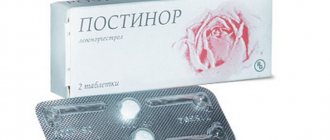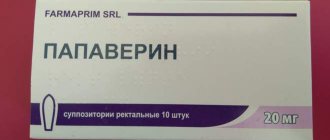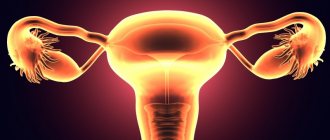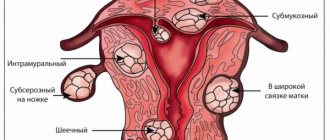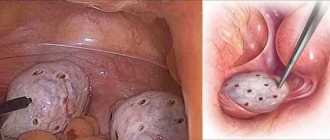In recent years, the childbearing period has become longer: now people give birth not only at 25 years old, but also after 45. Despite the decline of the reproductive system, many decide on IVF during menopause, because this is the only possible way to give birth to a child in the postmenstrual period.
In vitro fertilization is resorted to when, due to hormonal changes, the ovaries do not produce an egg, and the probability of conception tends to zero. Menopause is not a reason to give up the decision to have a child, because modern medicine allows a woman to become a mother even after 50 years.
Fertilization after forced menopause
If menopause is a natural process of aging of the female body and the end of the reproductive period of its life, then artificial menopause is the forced stop of ovarian function and estrogen production as a result of drug exposure. Similar procedures are resorted to in the case of uterine bleeding, diseases of the pelvic organs, uterine fibroids and endometriosis. There are no contraindications to in vitro fertilization after artificial menopause, nor any strong recommendations. The fact is that after completing the course of treatment and taking medications, the ovaries gradually begin to work as usual, the menstrual cycle normalizes and the likelihood of getting pregnant in the traditional way increases.
What does the fertilization procedure look like?
After the couple has passed the mandatory medical examination and received the approval of all specialists, a package of documents is signed. Then the woman begins to prepare for the IVF procedure. We are considering a situation where a woman is menopausal and no longer has a menstrual cycle.
In this case, we can talk about naturally occurring anovulation – not the maturation of the egg. First of all, she is prescribed hormone replacement therapy in order to equalize her hormonal levels. This is necessary for the growth of the endometrium. A woman is first prescribed estrogen-containing drugs, and then drugs containing gestagens.
In general, older women may require additional hormonal support during pregnancy. It is necessary to strictly adhere to all the recommendations of the attending physician and then the woman will be able to successfully bear and give birth to a child.
Medical statistics show that IVF during menopause allows mature women to independently bear and give birth to a healthy baby. Undoubtedly, this is a complex process that must be approached with full responsibility.
The woman must undergo a comprehensive medical examination. For some serious diseases this procedure is contraindicated. If the lady is healthy and has no contraindications to IVF, then by following all the doctors’ instructions, she will be able to experience the happiness of motherhood. We wish you good health!
What do you know about the in vitro fertilization procedure for menopause?
When to do IVF
Despite the ability of medicine to fertilize a woman even during menopause, there are certain stages of life that are most favorable for manipulation. It is worth abandoning IVF during perimenopause due to unstable hormonal status. However, there is a small chance that a woman in this life cycle can still conceive a child without outside help.
If pregnancy does not occur for a long time, it is worth considering the method of in vitro fertilization. Experts prefer to plan pregnancy during the postmenopausal period, when a woman’s hormonal state has stabilized a little. However, it is important to remember that with the onset of menopause, the aging processes in the body are activated and occur faster, so you should not postpone IVF for a long time. Age-related changes in a woman’s body can become an obstacle to the successful bearing of a child, even if the procedure is successful.
Who are such manipulations contraindicated for?
IVF is considered, perhaps, one of the most effective ways of fertilizing a woman at a fairly mature age, when the body is exposed to hormonal cataclysms and is preparing for the transition to a new life cycle. However, it is worth understanding that motherhood is a great stress for a woman’s body, which must cope with significant loads and meet the necessary requirements.
The IVF procedure is contraindicated under the following conditions:
- the presence of restrictions from medical etiology that do not allow the necessary manipulations;
- diagnosing oncological processes in the uterine cavity and other pathological changes in tissue structure;
- low indicators of physiological health , which negatively affect the process of bearing a baby and the woman’s labor;
- the presence of contraindications to taking hormonal drugs .
The absence of the above restrictions does not yet guarantee a successful procedure. Only experienced specialists can give an opinion on the prospects of IVF, guided by the results of numerous tests.
Surveys
With age, a person’s health indicators decrease, chronic diseases appear, which can interfere with the successful course of pregnancy and negatively affect the development of the fetus. Therefore, before IVF, the expectant mother must undergo a full examination , which will allow the doctor to predict the results of the upcoming fertilization.
List of recommended studies:
- general blood analysis;
- Ultrasound of the heart and thyroid gland;
- cytological diagnosis of the cervix;
- fluorography;
- examination of the mammary glands by a mammographer;
- analysis for the presence of infections in the blood;
- consultations with specialists: therapist, oncologist, endocrinologist;
- Ultrasound of the uterus and hysteroscopy of the female reproductive system.
Examinations of the expectant father usually come down to studying the quality of his sperm, identifying and eliminating harmful bacteria in its composition, as well as assessing the ability of the germ cells to carry out fertilization.
Methodology for IVF during menopause
Thanks to modern developments in medicine, women who have entered menopause, even in the complete absence of natural maturation of eggs, have every chance of normal fertilization and successful pregnancy.
In vitro fertilization can be performed on a mature woman who has entered the menopausal phase using donor material (oocyte). To do this, an egg is taken from a healthy young woman, who in this case is the donor. Using a laboratory method, the collected egg is fertilized with the sperm of the woman's husband.
When an egg is fertilized by sperm, an embryo is obtained, which is implanted in the uterine cavity of the recipient (the woman who will bear and give birth). But for its attachment and further development, a certain layer of the endometrium is required, which is built up by taking drugs from the hormone replacement therapy group.
In standard situations, specialists initially prescribe estrogen-containing drugs for women to build up the endometrium, and then introduce additional therapy with gestagen-based drugs. It is recommended to continue hormone replacement therapy during pregnancy.
The only thing is that after the woman’s placenta begins to secrete hormonal substances itself during the growth and development of the fetus, hormone replacement therapy is adjusted, during which the intake of hormone-containing drugs can be simply adjusted with the lowest dosage or even canceled altogether.
Necessary conditions for IVF
Naturally, in vitro fertilization is the only opportunity to give birth to a child and experience all the delights of maternal happiness for women who have reached a piquant age and have entered the threshold of hormonal changes in their body and the transition from the fertile period to the next stage of the life cycle. But to undergo IVF, the female body must meet the following requirements:
- the absence of obvious contraindications of medical etiology that prevent this manipulation;
- no contraindications for taking hormone-containing drugs;
- the absence of various pathological neoplasms in the uterine cavity, such as fibroids, fibroids and others;
- the physiological state of the uterine organ and the entire body must be ready for independent bearing of the fetus.
It is important to remember that in most cases, in the female body during menopause, there are no mature eggs that can be fertilized and contribute to pregnancy. Therefore, a married couple must carefully approach this procedure and the use of donor cells on a psychological level.
Above, only the most basic points were discussed that contribute to the approval of in vitro fertilization in a mature woman. Among other things, before the procedure, a woman must undergo a number of necessary examinations. Based on the results obtained, the specialist evaluates the success of the procedure and gives a conclusion on whether to allow or prohibit IVF.
Necessary examinations for IVF
Before signing the agreement and all the necessary documentation for IVF, a woman must undergo a number of the following diagnostic examinations to assess her condition and the likelihood of successfully bearing a child:
- Taking general blood tests;
- Donating blood to determine the presence of infectious pathology in the body;
- Cytological diagnosis of the cervical region of the uterus;
- Fluorography examination;
- Examination of the mammary glands using mammography;
- Ultrasound examination of the thyroid gland and heart;
- A consultation conversation with a therapist, oncologist, endocrinologist and other specialists who have the opportunity to assess the general condition of the patient and exclude all kinds of contraindications for a successful pregnancy.
An ultrasound examination of the uterus is also performed, during which a reproductologist assesses its condition and, if necessary, prescribes an examination of the female reproductive system using hysteroscopy.
Moreover, the future father is also obliged to donate his biological material (sperm) to study and determine the likelihood of fertilization of the egg, as well as the absence of infectious microorganisms in its composition.
Based on the results obtained, the specialist issues a conclusion regarding the likelihood of successful completion of in vitro fertilization.
But there are times when even after several attempts at in vitro fertilization it is not possible to achieve success. What should a married couple who wants to raise a common child do in this case?
Price of the procedure
In modern clinics, IVF has a fairly high cost. It includes donor services, drug treatment and the necessary manipulations by specialists. In addition, such a procedure for menopause is carried out using different methods, which are selected individually, taking into account the characteristics of the female body.
Programs to combat infertility during menopause:
- IVF with donor cells.
It involves working with donor oocytes, which are fertilized by the husband's seminal fluid, then moved into the uterine cavity of the expectant mother.
- IVF in a natural cycle using a donor egg.
In this case, a viable germ cell is removed from the body of the recipient woman herself, after which it is artificially fertilized with the man's seminal fluid.
- A program for banking your own oocytes for women with reduced ovarian reserve.
This option for overcoming infertility is acceptable for women who are on the verge of menopause, but at the same time their egg has not yet lost the ability to mature on its own. With proper medical support, it is possible to achieve a positive result using natural fertilization.
On average, an IVF procedure during menopause will cost a patient 200-300 thousand rubles , excluding additional costs for medications and tests.
Risks and dangers of artificial conception during menostasis
- The embryo may not take root the first or even the second time. Naturally, during the menopause, roads are expensive every day and month, wasting time inexorably reduces the chances of successful completion of the plan. This often becomes a severe psychological stress for a woman who believes and dreams of motherhood.
- Since several embryos are transferred into the uterine cavity during the procedure, the risk of developing multiple pregnancies increases. During menopause this is extremely undesirable, because... the chances of success are significantly reduced due to increased stress on the mother’s body. In such cases, reduction is carried out - separation of embryos that developed in parallel.
- HRT can cause ovarian hyperstimulation syndrome, which can be dangerous to the life and health of the mother and fetus.
- Sometimes hormone therapy has a negative effect on the patient's health. Most often, the thyroid gland and the functioning of the cardiovascular system are affected. This reproductive technology is often accused of causing the development of cancer. Such a risk cannot be denied, especially if there is a predisposition.
- In test tube babies, the percentage of congenital pathologies is slightly higher. “Cleft lip”, “cleft palate”, heart defects, underdevelopment of the esophagus are more common in such children. To prevent serious chromosomal and genetic diseases, a preliminary examination of all participants in the process is carried out, and additional monitoring of the condition of the embryos is carried out before implantation.
IVF during menopause is a rather controversial thing. On the one hand, this is often the only chance to become a mother, on the other, the use of this technology is fraught with certain risks. Each individual case requires an individual approach. Only the joint work of specialists and future parents can give the desired result, namely, the birth of a healthy and strong baby.
Sources:
https://zaberemenet-pri-klimakse.ru/eko-pri-klimakse.html https://vklimakse.ru/vozmozhno-li-eko.html https://mesyachnyedni.ru/klimaks/lechenie/eko-pri- klimakse.html

